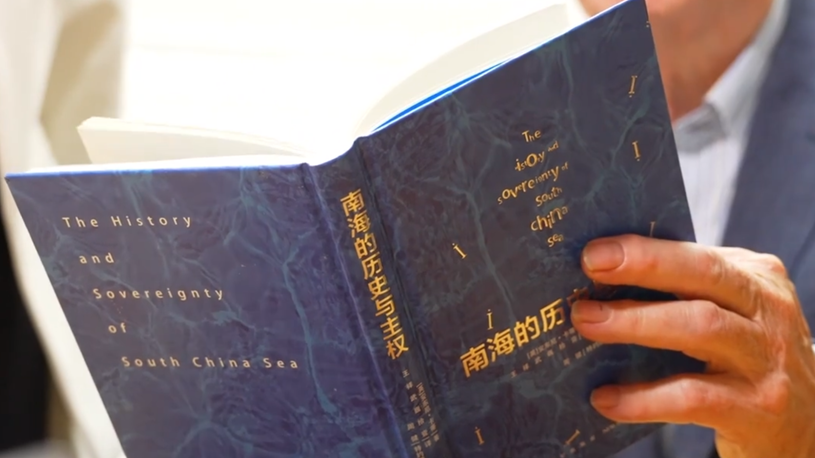BEIJING, April 29 (Xinhua) -- Is it possible to see mushrooms grow, hear flowers bloom, smell a rainforest and feel the airflow under the flapping wings of flamingos in a busy shopping mall in Beijing?
The answer is yes. A new exhibition at the Keyi Art Museum in the building of a Wanda Plaza takes audiences to different parts of the planet. Titled "Sensory Odyssey," it runs from April 30 to October 20, and was launched jointly by the Shanghai-based China Dream Live Entertainment (CDE Live), Sensory Odyssey Studio from France, and the National Museum of Natural History in Paris.
The exhibition features videos taken in different habitats, which are accompanied by various sensory effects such as odor and wind, so as to create an immersive experience for the audiences.
After entering the exhibition hall, visitors first step into the wilderness of Kenya, watching flamingos flying into the sky on a huge screen. They can also hear lions and zebras walking or drinking in the darkness ahead of a savannah thunderstorm, see visualized acoustic signals sent by bats in a rainforest in Peru, venture underground following the video to watch moles digging in tunnels and mushrooms breaking the ground, and immerse themselves in a magnified and amplified world to hear ants walking and flowers blooming. Finally, there is the chance to dive into the sea and witness whales spraying water into the air. The journey ends with a tunnel that leads back to the real world.
Gwenael Allan, CEO and co-founder of Sensory Odyssey Studio, compared the experience at the exhibition to Alice exploring the land of Charles Darwin. "All our content is magnified to allow you to hear, see, smell and feel nature like never before," he said. "We give you a superpower to perceive the world and change how you relate to it."
"At this exhibition, we are trying to break the 'screen' between us as observers and the animals and plants, so that visitors can really go into nature," said Zhu Ranhua, CEO of CDE Live, which brought the exhibition to China.
"This exhibition is different from what I have seen before," she said. She was herself touched by the production of the exhibition, and hoped that her emotion could be shared by the audiences.
Allan told Xinhua that the idea of creating such an exhibition came to him while he was in Brazil, where he found that the presence of "nature was very strong."
"A lot of the problems we find in society today are the results of disconnection between human and nature, and the prevalent view of nature as something you either use, exploit or are afraid of," he said. He hopes that this exhibition will help address the disconnection by helping visitors feel that they are a part of nature.
Sensory Odyssey Studio spent four years preparing, before they eventually started filming for this project back in 2020. Their team consisted of more than 300 people, including scientists, artists, designers, engineers and all kinds of sound, lighting and graphic specialists. Filming and production took a total of 18 months, with the team collecting footage and data from six places in the likes of Africa, Europe, South America, and more.
Beijing is the fourth place to host this exhibition, which was previously held in France, Singapore and Brazil, attracting half a million visitors, many of them being children. "The children become quiet," said Allan. "They listen. They become really attentive."
It is his wish that the exhibition will help people "better understand the emotions, behaviors and needs we share with all non-human species to create empathy within people," thereby encouraging us to "care for this planet we intimately share together and to do our best to regenerate it."
Part of the proceeds from the exhibition will be donated to the Shenzhen-based One Planet Foundation for the protection of rare animals and plants. Some proceeds will also be used for the restoration of key ecosystems in China. ■












